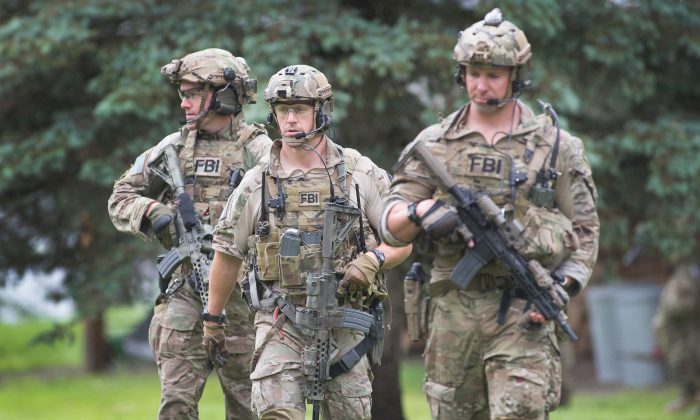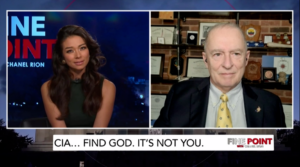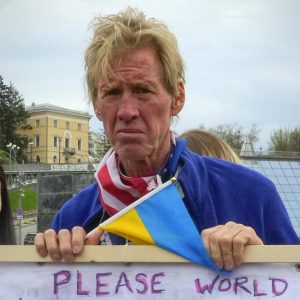FBI agents conduct a search for convicted murderer David Sweat on June 28, 2015 near Duane, New York. Scott Olson/Getty Images
There are 17 federal agencies that form the intelligence community (IC):
The Office of the Director of National Intelligence (DNI), Central Intelligence Agency (CIA), Defense Intelligence Agency, Federal Bureau of Investigation (FBI), Department of Homeland Security (DHS), National Reconnaissance Office, National Security Agency/Central Security Service, Department of Energy, Department of State, Department of the Treasury, Drug Enforcement Administration (DEA), U.S. Air Force, U.S. Army, U.S. Coast Guard, U.S. Marine Corps, U.S. Navy, and the National Geospatial-Intelligence Agency.
Prior to World War II, only three of the agencies that are today in the IC even existed—the Department of State, created in 1789; the Department of the Treasury, created in 1789; and the FBI, created in 1908.
Following World War II, after a significant period of looking at the lessons learned, the United States made major changes to intelligence and essentially founded the IC. For the sake of brevity, I’m unfairly lumping the military into a single category that was reorganized to include the Air Force as a separate service, intelligence units within the different military branches, and the creation of the CIA as a civilian organization, all in 1947.
The problem is that we have seen the U.S. government continue to grow at an alarming rate to increase the size of the IC until we find ourselves at the excessive number of 17 “intelligence” agencies.
Growing Bureaucracy
Following the well-thought-through 1947 changes, but prior to Sept. 11, 2001, the following agencies were added to the list: National Security Agency/Central Security Service (1952), Defense Intelligence Agency (1961), National Reconnaissance Office (1961), Drug Enforcement Administration (1973), Department of Energy (1977), and the National Geospatial-Intelligence Agency (1996).
In the aftermath of the 9/11 attacks, President George W. Bush created the National Commission on Terrorist Attacks Upon the United States, which we all know as the 9/11 Commission. It was chaired by Thomas H. Kean, with Lee H. Hamilton as vice chair, and included Richard Ben-Veniste, Fred F. Fielding, Jamie S. Gorelick, Slade Gorton, Bob Kerrey, John F. Lehman, Timothy J. Roemer, and James R. Thompson.
If you ever have trouble falling asleep, I urge you to look at the background and bio of each of these individuals, who are remarkably similar. They’re almost exclusively lawyers, academics, and politicians, and most of them go back and forth within those professions. In other words, they’re consummate bureaucrats.
Not a single one of these individuals was a career professional operator who actually had direct experience of working in counter-terrorist operations. Not one. Consider the enormity of this following the tragic 9/11 attacks. We filled a room with bureaucrats who concluded that more bureaucracy was the way forward. Go figure. We didn’t include a single person who had direct hands-on experience working against terrorism and who might actually have the needed experience to come up with practical solutions.
As a former career professional operator, I can assure you that not one of us from any of the operations disciplines would have come up with the idea of creating more layers of bureaucracy and launching the DHS and DNI.
After a full career in the swamp, I understand much about government, and one of the lessons is how government views solving problems.
No Solutions
The government doesn’t care about solving problems. I know this is counter-intuitive, so let me say it again: The government doesn’t care about solving problems. They care about showing they did something, not solving anything. Let me explain.
If you show you did something in response to a problem, it’s going to be visible to everyone, including the public, and then you’ll receive positive feedback from government leadership and the public. If you actually solve the problem, the solution might have to be purposely hidden from public view, take time to make work, and there’s often some price to pay for real solutions.
Real solutions, more often than not, make someone angry, because you actually have to take action. That means negative feedback from at least some portion of the public and subsequently also from government leadership.
In government, it’s easier, faster, and better to do almost anything else, particularly if it’s completely ineffective, because that doesn’t have any secondary impact.
Streamlining
Speaking of doing something, the world is becoming more dangerous, not less, and we need to streamline (reduce bureaucracy) and increase the efficiency and effectiveness of the IC to maintain national security. Here are a few initial suggestions, which are limited in scope.
First, the DEA needs to be combined with another agency. When it was established, it was a great tool to work against narcotraffickers, but through no fault of its own, it has been overcome by events. Now, the criminal world has evolved and the drug trade is mainly run by transnational criminal organizations who are involved in all sorts of criminal activities, often unrelated to drugs.
The counter-intelligence (CI) division of the FBI needs to be removed and placed elsewhere. The combination of intelligence and law enforcement is too much power in one location, which is precisely why the CIA was created as a separate civilian agency rather than given to the FBI or even the military in 1947. We can all see that the deep and dangerous political corruption that permeates the leadership at the FBI and brought us Spygate was centered in the CI division. That’s not a coincidence; it was a mistake to combine intelligence and law enforcement.
Finally, the Human Intelligence (HUMINT) espionage activities need to be removed from the CIA, the military, and any others involved and combined into a new civilian agency that does HUMINT operations and only directly related activities, such as intelligence liaison and covert action, for example, and nothing else. This new agency shouldn’t have anything to do with setting U.S. policy nor perform analysis as an internal function. It should take care of business, report the facts, and let analysts and policy makers do what they will with the information.
You can see from these solutions why trying to do anything real is so much harder.
Brad Johnson is a retired CIA senior operations officer and a former chief of station. He is president of Americans for Intelligence Reform.
Views expressed in this article are the opinions of the author and do not necessarily reflect the views of The Epoch Times.




